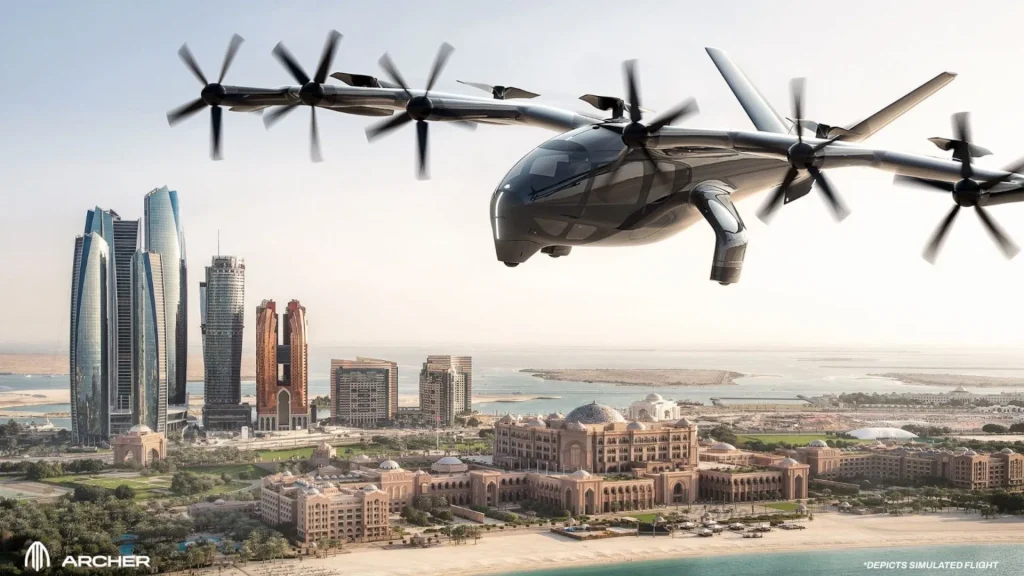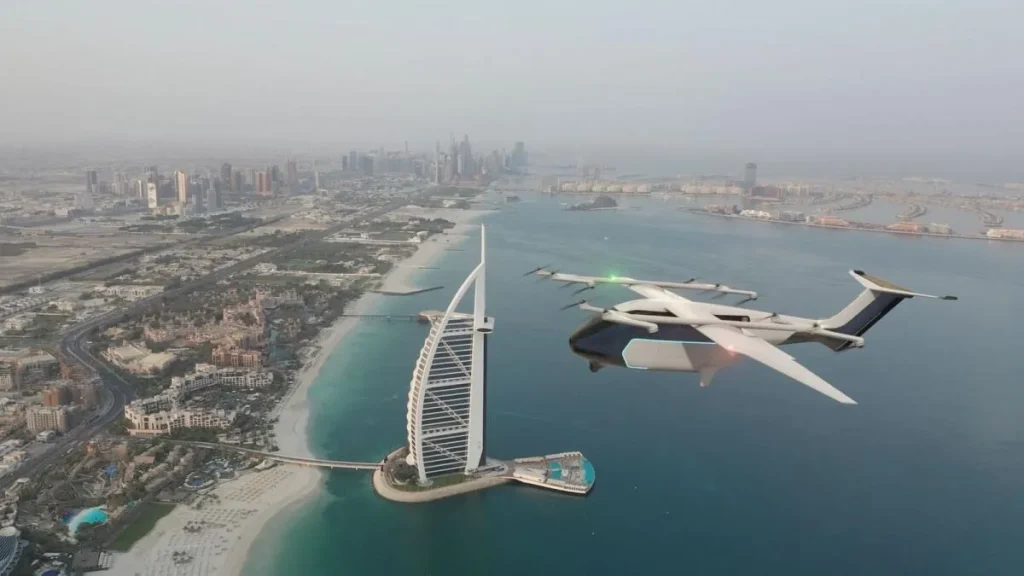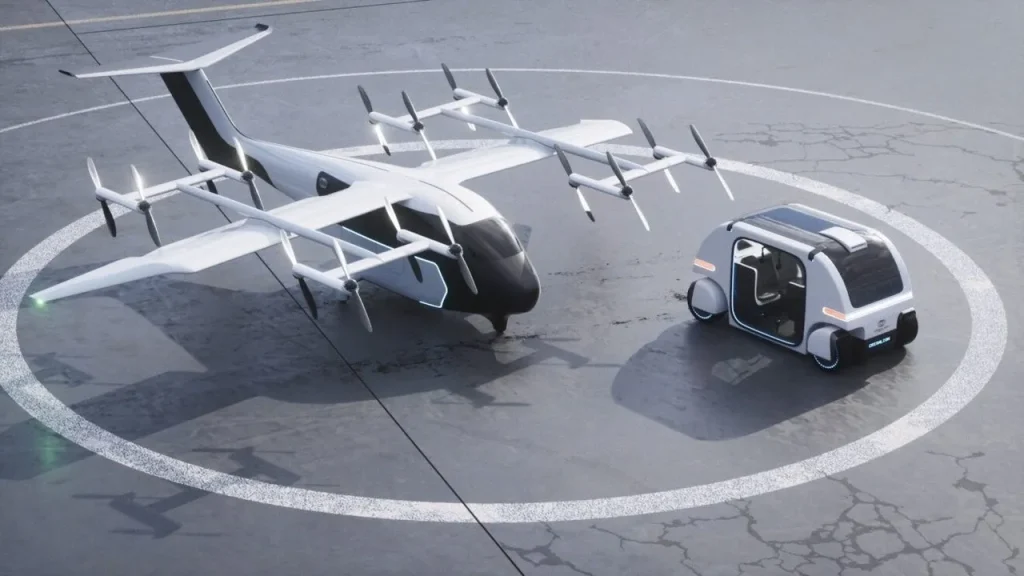Air Chateau, a private aviation operator based in Dubai, has secured an order for 10 electric flying cars from Crisalion Mobility, a European mobility solutions provider. This deal marks Crisalion’s first commercial venture in the Middle East. The electric flying cars, known as Integrity air taxis, are set to revolutionise urban and intercity transport in the UAE starting in 2030.

Features of the Integrity Air Taxi
The Integrity air taxi, currently in development, is designed to carry up to five passengers and a pilot. It boasts a top speed of 180 kilometres per hour and a range of 130 kilometres on the current battery technology. Manuel Heredia, General Manager at Crisalion Mobility, confirmed that the Integrity aircraft will enter service in 2030, with initial deliveries slated to begin then.

Expansion Plans and Market Impact
The UAE, along with Saudi Arabia, is rapidly advancing in the field of air mobility, aiming to significantly cut travel times with the introduction of air taxis. Companies like Joby and Archer Aviation are also preparing to launch their flying cars in collaboration with UAE partners next year. Samir Mohamed, Chairman of Air Chateau, highlighted Dubai as a pivotal location for this new form of transport, noting the support from Dubai South and UAE stakeholders. Following the Dubai launch, Air Chateau plans to explore expansion into other regions including Southeast Asia, South Asia, and Europe.
Growing Demand and Future Prospects
The order of 10 Integrity air taxis at the Farnborough International Airshow 2024 has expanded Crisalion’s pre-order book to 125 aircraft in less than a year. Both companies aim to introduce air taxis in major UAE cities such as Abu Dhabi and Dubai, with potential future collaborations in Europe.

Heredia and Mohamed emphasise that this partnership not only strengthens Crisalion’s presence in a strategic region but also aligns with Air Chateau’s vision for sustainable air travel. The initiative is expected to ease the pressure on existing ground infrastructure, enhance transportation networks, reduce congestion, and contribute to a more sustainable future.
